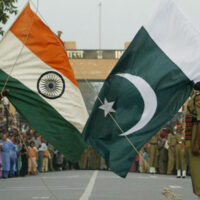Egypt’s new and inspiring constitution has in its grasp the potential to break ground the way no constitution yet to emerge from the wave of reform in the region has. But how quickly we can go from the cell to the castle and forget our way home.
Not only will Egypt’s constitution unify some 82 million people in a singular code of the nature of the nation, it will be the constitutional declaration document of nearly one-quarter of the Arab world.
It has the ability to be The Declaration of Independence and The American Constitution and The Indian Constitution, and then some. The first a declaration of war against tyranny, the second a declaration of limitless possibility of equality and pursuit, and the third the most successful document to unify a fragmented nation divided by class, caste and language that comprises the largest democracy in the world.
So how disappointing then that the nation that knows what it’s like to be the underdog, the nation that knows what it feels like to be left off the registry of those allowed to determine their destiny because of their class or by corruption above or by cruel negligence, would consider exclusion.
What a shame that this nation of all nations, which knows only too well, and too recently, the devastating loss inflicted on a whole people when a fraction of it is condemned to disappear, would consider even briefly to discriminate.
What a disservice to this nation of all nations, that knows far too well, and far too currently, the lack of discrimination that befall those standing on the wrong side of the bench of the judiciary or at the wrong end of the batons of the police or looking at the inside of the bars of a cell, would choose to judge faith.
What a surprise that this nation would go so quickly from a cell to the street to the throne and then to chair of judgment and forget that once upon a recent time it stood shoulder to shoulder with an astonishingly large and vast nation that is all of its Nubian, Arabs and Greeks, its Coptic, Sufi, Sunni, and Jew. It is a nation that has never lost the support of its steadfastly loyal Bahá’ís.
How quickly the majority would forget that they too were once a people who would never fail their nation no matter how many times their nation would fail them. How quickly they would leave people behind who stood with them in heartbreak and victory.
There is only the people of this nation that will know the exact stench of expired tear gas, the precise fear of a loved one come home too late, the profound exhaustion caused by the sight of a military cordon.
It is only the people of this nation that know exactly the contagious love of living along the Nile, the stupefying beauty of this country’s waters, sands and sprawling streets.
Every last one of them are the only ones on earth who know more about that love and that loss than any other people of any nation on earth.
And not a single one of them can afford to be left behind. Because this is not a nation loved by and built by some of its people, it was and is loved by and will be built by its entire people.
That nation’s constitution is far too great, far too powerful, and far too necessary to a world that has always watched it closely as an example and inspiration, to make the first codified act of not only its democracy, but its bravery, one of inhumanity.
One of discrimination, exclusion, and judgement.
How tragic that the Arab world’s greatest constitutional declaration of freedom will fight its greatest battle over the language of fear.
Fear of this nation’s Bahá’ís, this nation’s Sufis, this nation’s Shi’a.
Now is the time to look to the right and the left and realise that no one came here alone. No one can be left behind.



